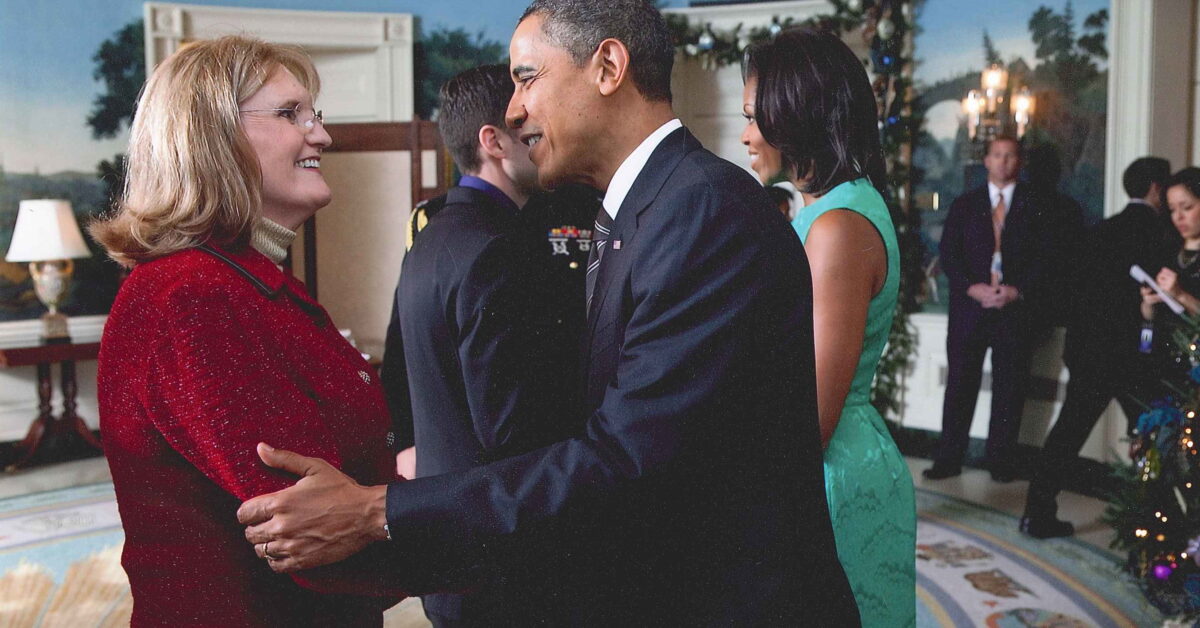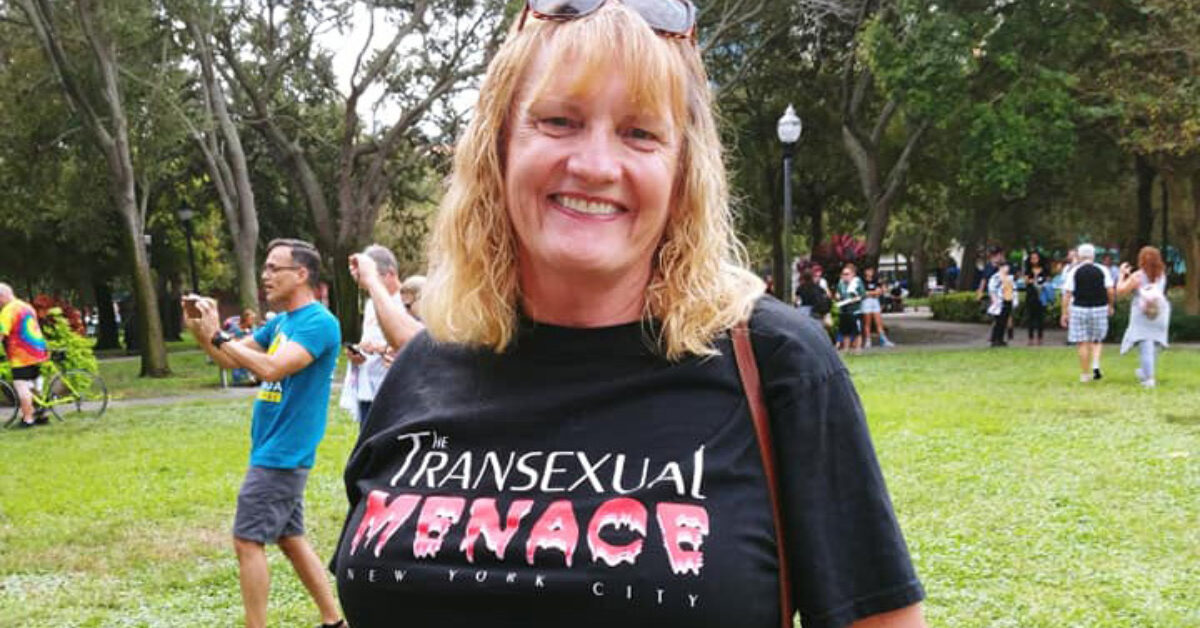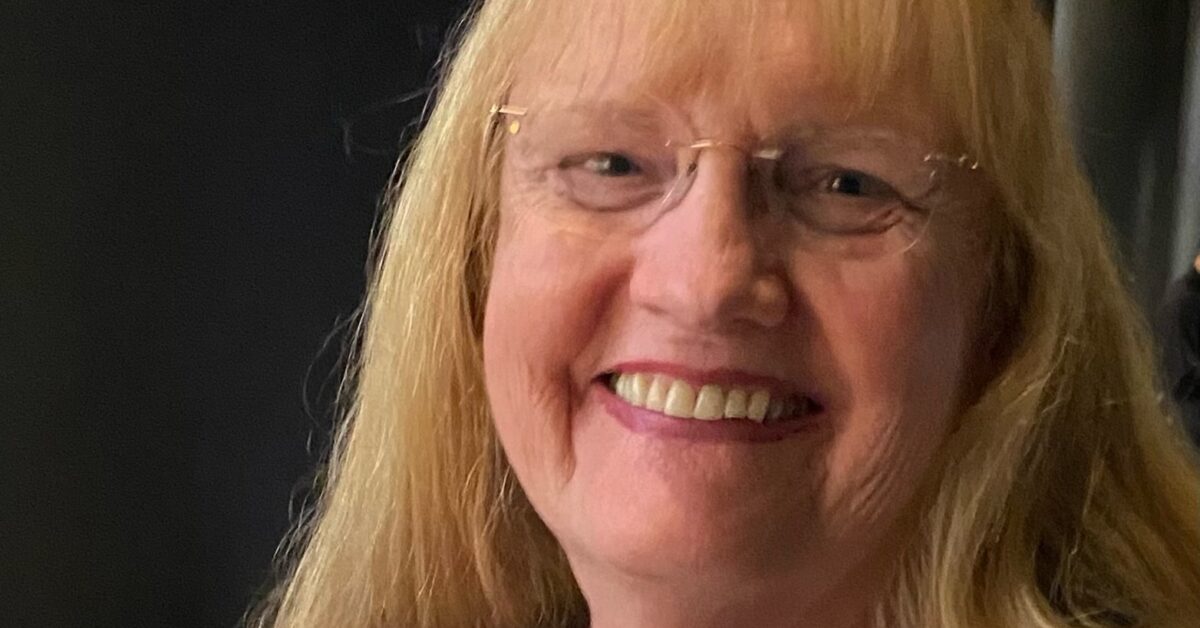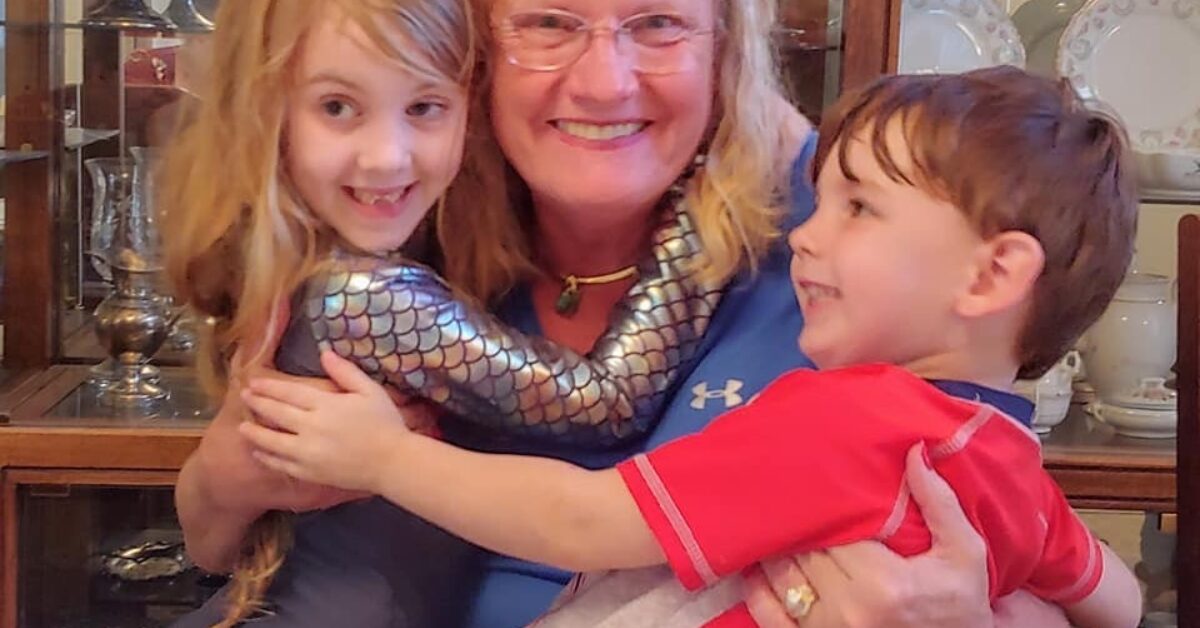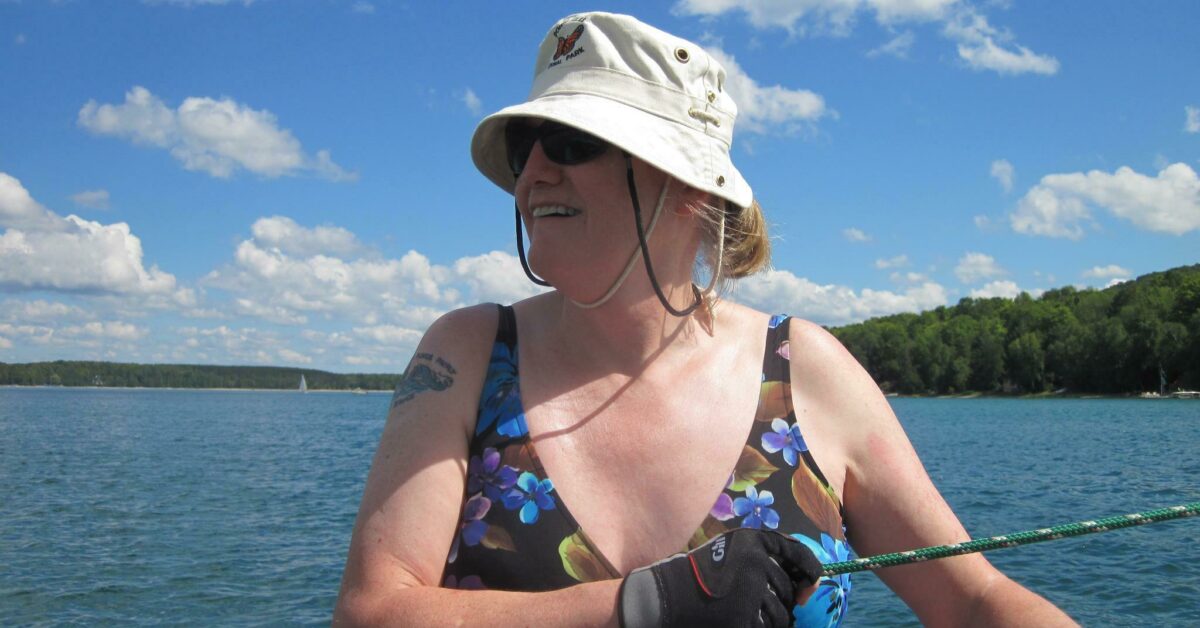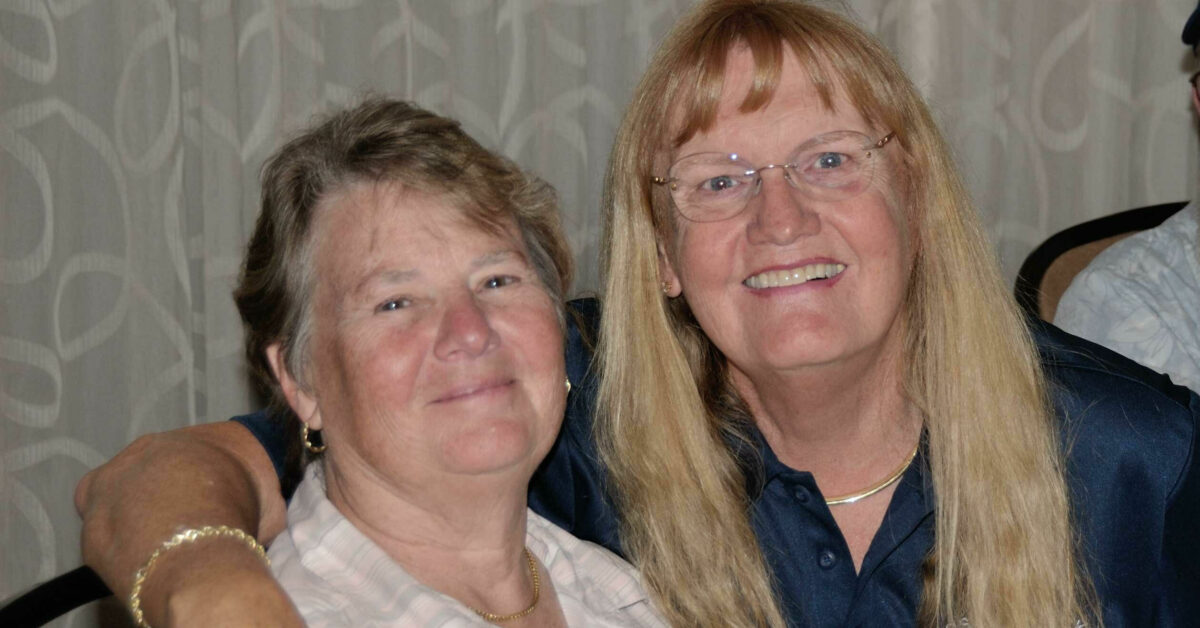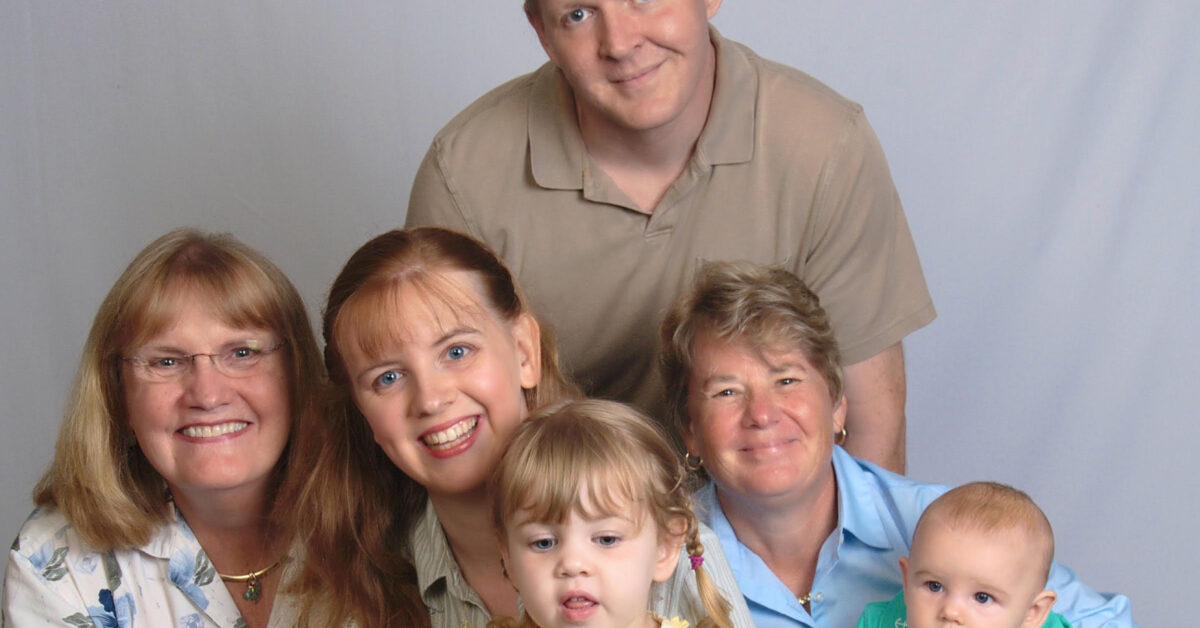Where Are They Now? Catching Up With Longtime Michigan Trans Advocate Denise Brogan-Kator
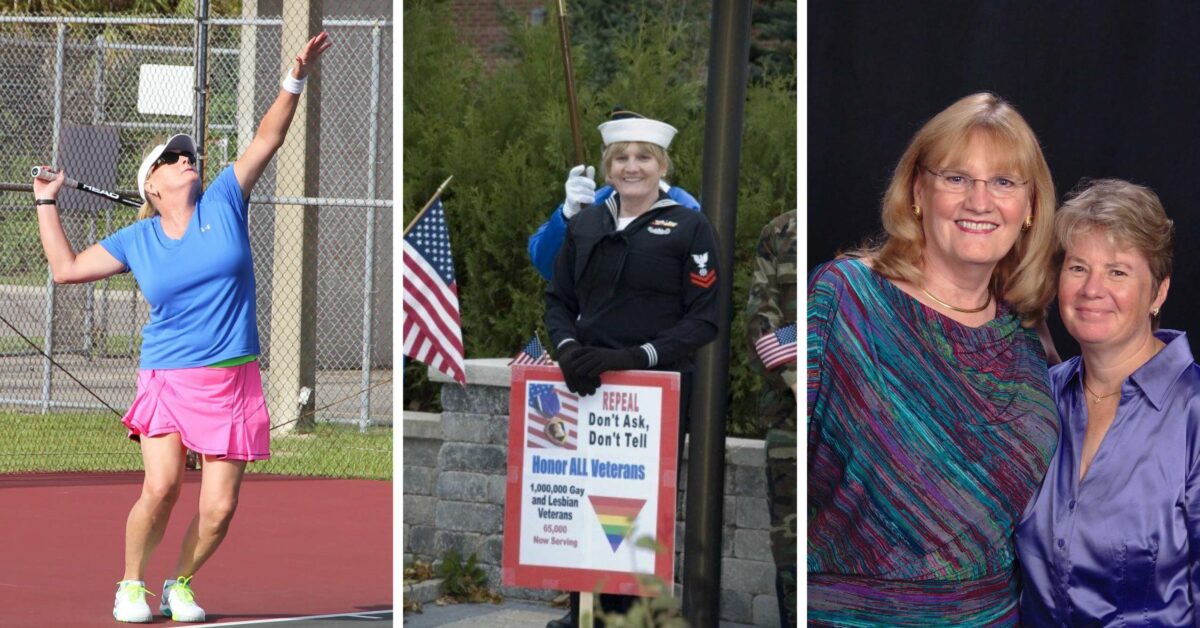
Our new "Where Are They Now?" column will get you up-to-date on the lives of LGBTQ+ community advocates who have contributed to Michigan with years of tireless activism before embarking on new chapters, whether in retirement or pursuit of fresh opportunities elsewhere. In this space, we'll trace the paths of these trailblazers as they navigate life beyond the limelight, offering insights into their current endeavors, passions and the legacies they continue to shape. Join us as we celebrate their resilience, achievements and the lasting impact they've left on Michigan's LGBTQ+ community.
First up is Denise Brogan-Kator, who served in various LGBTQ+ advocacy capacities for decades, including as the first transgender executive director of a statewide LGBTQ+ organization, Equality Michigan — though this was far from the only “first” she achieved during her career.
1. What is your connection to the LGBTQ+ community in Michigan?
Twenty years ago, after a business career in Florida, I became the first openly trans student at the University of Michigan Law School. While there, I worked as a volunteer with the Washtenaw Rainbow Access Project where I worked with Jim Toy and the Triangle Foundation led by Jeff Montgomery — both of these pioneers became friends and mentors during my time as executive director of Equality Michigan — and was a member of the U of M Speakers Bureau, helping to raise awareness of trans people as part of the University community. I also worked for and helped organize the drive to get the university to expand its bylaws to prohibit discrimination in all forms on the basis of gender identity. I was honored when, the year after graduating, the trustees of U of M invited me back to witness the vote as the bylaws were so amended. Ten years later, I returned to Michigan Law for a semester, as the first openly transgender adjunct law professor, to teach a course on LGBTQ+ law.
After graduation, my wife Mary Kator (also a Michigan Law grad) and I started Rainbow Law Center, a law practice we set up to serve the diverse needs of LGBTQ+ people in southeastern Michigan. We served many clients prior to marriage equality, helping them to establish legal arrangements that protected each other and their children; we set up wills, trusts, deeds and powers of attorney, and too often, helped couples to separate. We also litigated child custody matters and various types of discrimination. One of our most significant cases was representing a client who had been arrested during a police sting operation that targeted gay men. Our success in the case helped to stop such operations.
While practicing law, I served on the board of the Triangle Foundation in several capacities before being elected chair. I worked with the boards of Triangle and Michigan Equality to combine forces as Equality Michigan. Later, I served as executive director of the organization; I was the first transgender executive director of a statewide LGBTQ+ organization not specifically focused on transgender issues. While ED, I had the great privilege of meeting the President of the United States, Barack Obama, at the White House during Pride festivities.
During my time at Equality Michigan, our principal focus was to advocate for the amendment of the Elliott-Larsen Civil Rights Act to protect LGBTQ+ people from various forms of discrimination in jobs and in public accommodations. Although we made progress, it wasn’t until years later that the person we worked closely with in the state senate, Gretchen Whitmer, signed that amendment into law as governor. We also worked very hard to build community and engage with other organizations such as Affirmations and LGBT Detroit to listen and learn how to work together on the issues that mattered to everyone.
2. What have you done since leaving Equality Michigan?
After leaving Equality Michigan, I worked in the policy department of the national LBGTQ+ family rights organization, Family Equality (formerly Family Equality Council). Over nine years, I moved up through the organization to Chief Policy Officer and, finally, served as the interim Chief Executive Officer as we conducted our national search for our new CEO.
We accomplished many notable things during my time at Family Equality. I started the organization’s legal aid clinics for lower-income families in the deep South. In Mississippi, we joined in a case that overturned the last remaining law in the nation prohibiting LGBTQ+ couples from adopting and fostering. We also worked on several marriage equality campaigns in various states in partnership with the state LGBTQ+ organizations, all of which were successful.
At Family Equality, we worked with outside counsel to write several “Voices of Children” amicus briefs for the Supreme Court and other federal courts around the country in support of marriage equality, emphasizing how legally recognized marriages (or the lack thereof) affect family stability, especially children’s well-being. In oral arguments in the Windsor case that overturned DOMA, Justice Kennedy held our amicus brief aloft and asked a lawyer advocating against marriage equality if he’d read it and asked what was to be done about all the children of LGBTQ+ couples. It was a proud moment and, I’m convinced, helped to sway Justice Kennedy and win the day for marriage equality.
After marriage equality was achieved, I led our policy team as we worked with several LGBTQ+ state organizations and their legislatures to help them rewrite and update their parentage laws to reflect marriage equality. I also led the coalition that finally overturned New York state’s ban on surrogacy, opening that pathway for LGBTQ+ couples to form their families.
3. What is your proudest achievement as an LGBTQ+ activist?
That’s tough to say. My activism career spans several decades, back to the early 1990s when I helped start a trans-specific non-profit dedicated to assisting transgender first responders and military veterans. I am very proud of the teams that I was able to assemble and lead, both at Equality Michigan and at Family Equality, that had such an impact on the lives of LGBTQ+ people and their families.
But ultimately, I think my proudest accomplishment has simply been being visible, which has included becoming the first trans person to attend Michigan Law and the first trans person to become a law professor there. I was also the first trans person to lead a statewide LGBTQ+ organization and a visible trans person who spoke regularly at events and panels across Michigan and across the nation about being trans. These activities helped to raise the visibility of trans people, helped to turn acquaintances into allies, and even to inspire younger people to be their authentic selves. It’s great to hear from people that, at least in some small way, I have made a difference in their world.
4. How is the fight for trans rights now different than it was when you were leading Equality Michigan?
When I started advocating for transgender rights, long before I led EQMI, transgender people were often pariahs, even within the broader LGB community. I recall, clearly, when we were cut from proposed non-discrimination statutes because people thought that doing so would allow it to pass and then they’d “come back for us.” I recall, clearly, when a U.S. Senator from my home state took an involuntary step backward when he learned that I was transgender, as if I were a threat or contagious. Back then, we were just trying to get acknowledgment of our basic humanity and worth.
As ED of EQMI, I used to say that if it was safe for you to be out, please be out. We needed the visibility. It is common knowledge that to know someone who is gay or lesbian is to lessen your opposition to our equality. The same is true for trans people.
Thankfully, we have achieved much for trans people in that regard. We are no longer omitted from proposed legislation; our inclusion in the acronym LGBTQ+ is no longer a battle or, worse, an empty promise.
However, trans people make up a tiny percentage of the population; many people either have never met a trans person or are unaware of ever having done so. That makes distorting the facts and vilifying our community that much easier. Consequently, powerful forces on the political right are now using the struggle for equality for trans and gender nonconforming people as a wedge to divide the nation for political gain. Worse yet, they have begun to attack our youth — passing laws in various states that deny life-saving care to transgender youth. The fight for trans equality was originally about the right to exist and, unfortunately, now it is about the right of trans youth to exist. I’m not sure that’s progress. But we are no longer alone in this fight and that is progress and I’m proud of the small role I played in that.
5. Where are you now?
I retired in May 2021 at 66 years old. Mary and I have recently moved from Florida to Asheville, North Carolina, where I plan to work hard only on my tennis game. One of the great joys in my retiring is the ability to spend more time with Mary and with my kids and grandkids. Now 8 and 10, they are growing up so fast. This summer we are planning a family trip to Yellowstone and I couldn’t be more excited.
